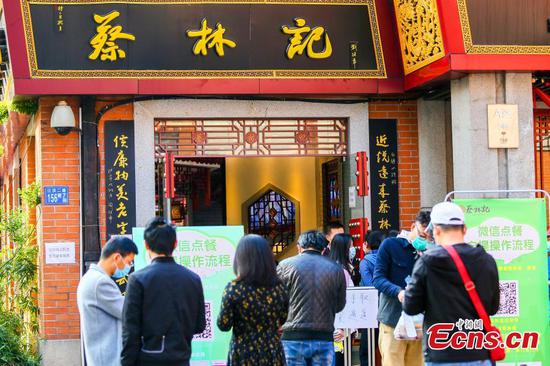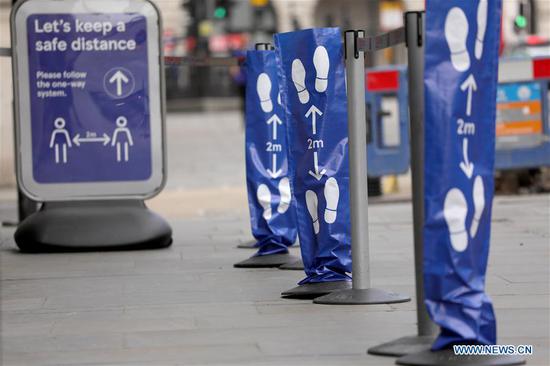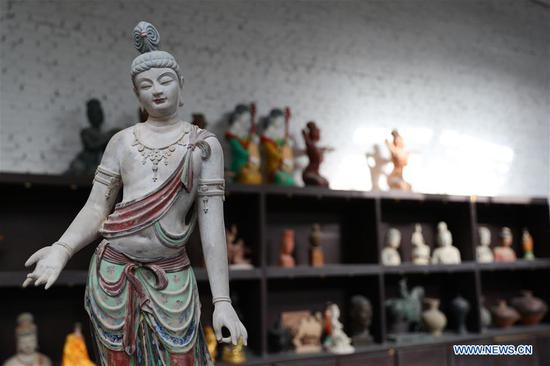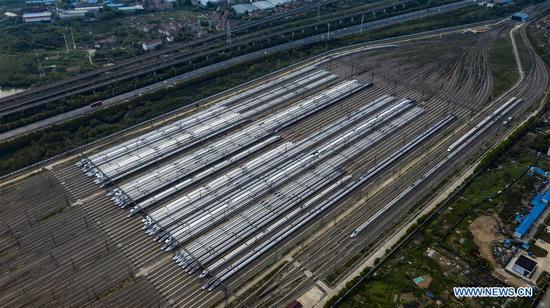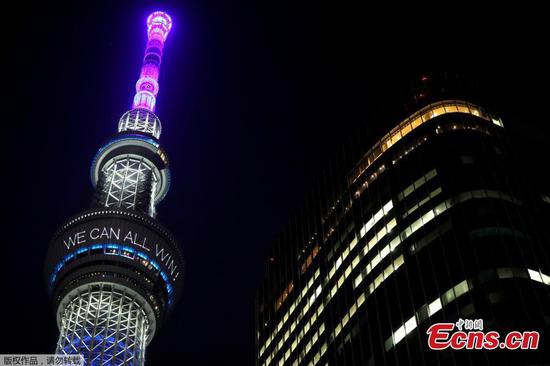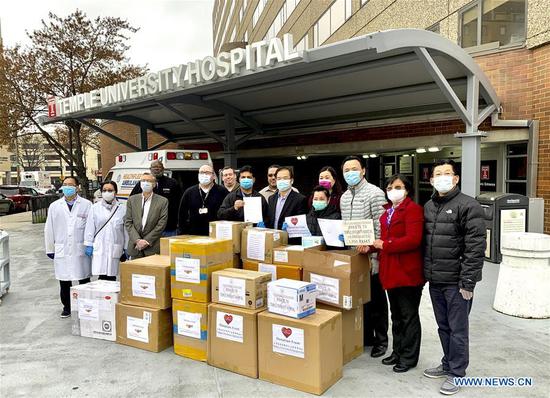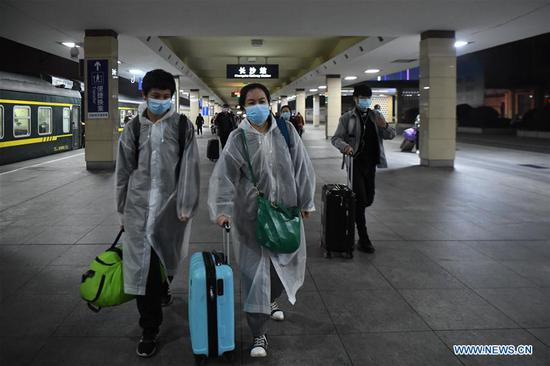
A cashier at a bank in Taiyuan, Shanxi province counts renminbi notes. (Photo/China News Service)
Move will encourage lenders to offer SMEs financing at favorable rates
China is stepping up financial support for small businesses by encouraging small and medium-sized banks to offer loans to these enterprises at lower rates, with the help of the central bank's re-lending and rediscount program.
Liu Guoqiang, deputy governor of the People's Bank of China, said the central bank will increase the re-lending and rediscount quota by 1 trillion yuan ($141.56 billion) to provide small and medium-sized banks with low-cost funds at a one-year interest rate of 2.5 percent.
The central bank will guide small and medium-sized banks to offer loans to small businesses at favorable rates through the implementation of incentivized assessment policies, Liu said at a news conference on April 3.
Earlier this year, China launched 500 billion yuan of re-lending and rediscount quotas. As of March 30, domestic banks offered 276.8 billion yuan in loans and discounted bills to 351,400 small businesses and farmers at favorable rates, meeting the State Council's requirement for lending rates of no more than 4.55 percent.
The additional 1 trillion yuan quota will be implemented as soon as the previous 500 billion yuan quota has run out, and detailed policies are to be launched soon, Liu said.
The financial stability and development committee under the State Council also said China will continue to give more credit support to micro, small and medium-sized enterprises and private companies that have been hit hard by the novel coronavirus outbreak, according to a statement issued after a meeting of the committee on Tuesday.
The committee will maintain a prudent monetary policy while keeping it more flexible and appropriate, and attach greater significance to supporting the resumption of the development of the real economy.
Various measures will be taken to boost support for small and medium-sized banks to replenish capital and strengthen their risk resistance and credit supply capacity, according to the statement.
"The People's Bank of China will provide smaller banks with low-cost, long-term funds through its re-lending and rediscount program, thus encouraging them to increase lending to small businesses," said Wen Bin, chief analyst at China Minsheng Banking Corp.
"Small and medium-sized banks should focus their main business on serving private and small enterprises, but the capabilities of these banks are restricted by their capital and funds. It is necessary for policymakers to help them eliminate bottlenecks so that they will become the main force providing financial services to small businesses," Wen said.
Currently, China has more than 4,000 small and medium-sized banks. Their total assets account for about one fourth of the entire banking sector, said Zhou Liang, vice-chairman of the China Banking and Insurance Regulatory Commission.
Risk exposure of small businesses has increased because of the economic downturn. The cyclical nature of the banking sector may heighten economic fluctuations and the occurrence of business risks, Wen said.
"Financial institutions should have a countercyclical mindset. When times get tough, they should not simply reduce lending, collect debt in advance or stop lending, for their asset quality will worsen if their clients' risks increase rapidly," he added.
To further expand funding sources for financial institutions and broaden low-cost financing channels for enterprises, China will support financial institutions to issue 300 billion yuan of special-purpose financial bonds for micro and small enterprises.
From Feb 25 to March 27, 14 banks issued a total of 131.5 billion yuan of special-purpose financial bonds for micro and small enterprises. Ten of the banks are city and rural commercial lenders.
Most of the bonds will mature in three years. Their coupon rates range from 2.65 percent to 3.8 percent, according to the National Interbank Funding Center.
The relatively low interest rates of bonds at present will reduce the cost of debt for smaller banks and eventually benefit small businesses, Wen said.
To satisfy small business demand for funds, financial regulators also encouraged banks to ramp up support for core enterprises within supply chains and urged these enterprises to make advance payments in cash to small businesses in the upstream and downstream supply chain, Zhou said.
"We tightened regulations to make sure that the core enterprises of a supply chain will not infringe upon the interests of small businesses. We also support companies to use their accounts receivable, warehouse receipts or inventories as collateral to secure loans," he added.













